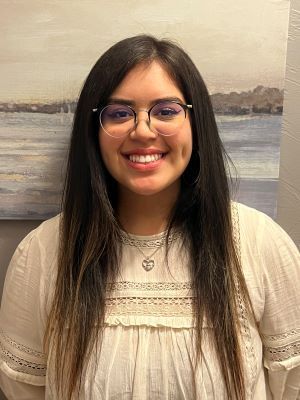A New Our Bodies Ourselves Launched Online

In the lead-up to launching an online version of a more than 50-year-old veritable bible of female physiology, sexuality, and overall health, Paola Yamal-Santiago noted what she held in common with other women as she interviewed them about their health care experiences.
“I heard a lot about women with painful menstrual cramps and irregular periods who said, ‘I thought I just had to deal with it,’” said Yamal-Santiago, a sociology major at Suffolk University in Boston. She’d volunteered for various tasks in creating Our Bodies Ourselves Today, an expanded, online version of the book Our Bodies, Ourselves, first published in 1971.
Continued Yamal-Santiago about the up-to-date iteration of that tome: “When they’d go to doctors, they’d tell these women the same things I’ve heard: ‘Oh, you’re fine. Just take an Advil ... ’”
The fuller truth, she added, is that a woman may have been suffering something more serious. And, either way, she should not have to settle for merely tolerating discomfort or having it casually dismissed, Yamal-Santiago said.
That pioneering book aimed to ensure that girls and women of a prior era were steeped in the details of their physicality and sexuality. The first iteration, “Women and Their Bodies: A Course,” a Boston Women’s Health Collective publication, appeared in 1970, at a time when even basic information about women’s health was hard to come by, medical research all but ignored women, and many in an army of mainly male physicians too often dismissed women as overwrought and overthinking their health concerns. Likewise, the website, which launched recently, aims to equip cisgender women, trans women, and nonbinary people with the information they need today.
“It has such a history,” said Saniya Lee Ghanoui, program director for Our Bodies Ourselves Today, based at Suffolk University’s Center for Women’s Health and Human Rights.
The online project’s timeline traces back to 2018, when 100 women — of varying races and lived experiences, ranging from teenagers to Our Bodies Ourselves founders and other elders — to vet and curate content for each of the nine subject areas explored on the digital version of Our Bodies, Ghanoui said.
“We had to think about how users would use our platform,” added sexuality and reproductive rights researcher and historian Ghanoui, senior producer of the podcast Sexing History. “We recognized we’d have a wide range of users: teens and tweens, those going through menopause, and even older ... We wanted to build a site that would be welcoming and easy for everyone.”
The site’s nine subject areas are entitled contraception and abortion; gender-based violence; growing older; heart health; menstruation through menopause; mental health; pregnancy and childbirth; sexual anatomy; and sexuality.
Within those categories “there are hundreds of topics that can be filtered by content type … videos, articles. It’s an A-to-Z comprehensive overview,” Ghanoui said.
She approached the work largely as a historian, said Ghanoui, co-creator of SourceLab, a digital publishing initiative at the University of Illinois at Urbana-Champaign, where she earned her doctoral degree. From the outset, she knew the background of the original Our Bodies and what it has meant to millions of women. She has heard women recall their experiences with the tome and the crucial information it offered, decades or mere years ago. The book remains available for sale.
It is not lost on her, Ghanoui said, that the launch of Our Bodies Ourselves Today closely trailed the U.S. Supreme Court’s controversial June ruling overturning Roe v. Wade, the landmark 1973 decision paving the way for women to have legal, medically safe abortions.
“We started this before the Dobbs decision,” Ghanoui said, citing the Mississippi case behind the court’s June decision allowing states to outlaw abortion. “What we are seeing now is a reinforcement that Our Bodies Ourselves, as a resource, today is critical. Information and education are power.
“If people have access to information that’s easy to understand, that is clear and accurate, they can make a decision about their body that is best for them. I’m not only talking about abortion, but about any aspect of one’s body … and about maintaining their health. Our Bodies Ourselves is a resource we can update and change with the times.”
The book has been updated and reissued every five to seven years. The online site allows for much speedier updates, she added.
Also, said Suffolk student Yamal-Santiago, making the content available digitally comes at a fraught juncture, when people should temper outrage over, say, divisive politics or Roe’s reversal, with hope: “Working with Our Bodies Ourselves Today is my way of doing something to make the world more inclusive. It lets me view other people’s experiences. It lets me understand them and it lets me empathize.”
Joan Ditzion, a founder of the collective, said the information and issues detailed in that seminal book, which spent several years on The New York Times bestseller list, and its digital offshoot are as essential now as ever.
“Our hope us that it will be a go-to site, especially, for young women but also women of all ages,” said Ditzion, who helped develop the “growing older” vertical for Our Bodies, Ourselves Today.
“I’m an aging activist, and ageism is our society is horrible. No one is spared. It’s the most invisible sort of prejudice,” she added. “But, for the young women who’ve been active in keeping this work going, they are the beneficiaries. The rights we fought for … are now being rescinded. The younger woman didn’t really know how bad it was 53 years ago. One of the hopes is that they can understand the history and where they fit in now and how to keep things growing.”
More articles by Category: Health, Media
More articles by Tag: Health care



























